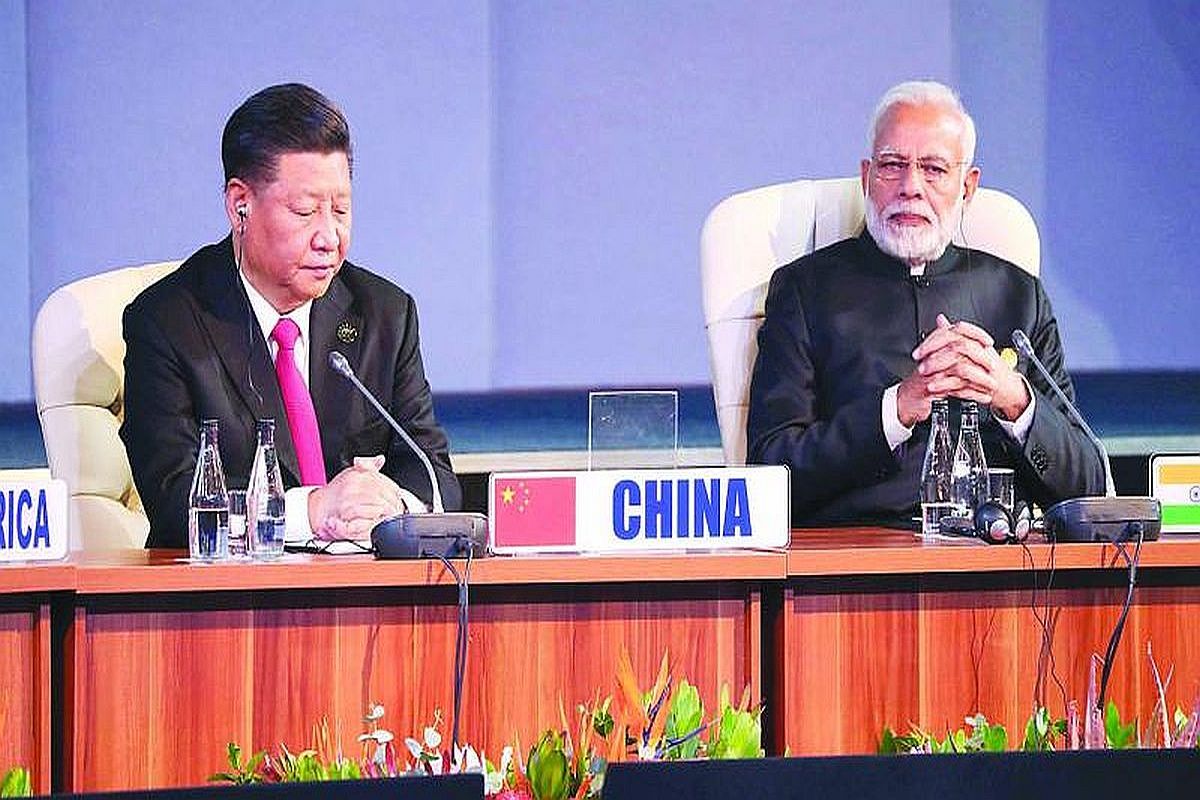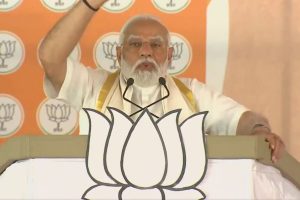Amid border row with China, the Government on Thursday imposed restrictions on bidders from countries, which share a land border with India, in public procurement, services or other works, on grounds of national security.
However, a relaxation is provided only if the bidder is registered with the competent authority.
The Government of India amended the General Financial Rules 2017 to enable imposition of restrictions on bidders from countries which share a land border with India on grounds of defence of India, or matters directly or indirectly related thereto including national security, an official statement said.
The Department of Expenditure has, under the said rules, issued a detailed order on public procurement to strengthen the defence of India and national security, it said.
As per the order, it said, any bidder from such countries sharing a land border with India will be eligible to bid in any procurement whether of goods, services (including consultancy services and non-consultancy services) or works (including turnkey projects) only if the bidder is registered with the Competent Authority.
“The Competent Authority for registration will be the Registration Committee constituted by the Department for Promotion of Industry and Internal Trade (DPIIT). Political and security clearance from the Ministries of External and Home Affairs respectively will be mandatory,” it said.
The order takes into its ambit public sector banks and financial institutions, autonomous bodies, Central Public Sector Enterprises (CPSEs) and public private partnership projects receiving financial support from the government or its undertakings, it added.
Observing that state governments also play a vital role in national security and defence of India, it said, “the Government of India has written to the Chief Secretaries of the State Governments invoking the provisions of Article 257(1) of the Constitution of India for the implementation of this Order in procurement by State Governments and state undertakings etc.”
For state government procurement, it said, the Competent Authority will be constituted by the states, but political and security clearance will remain necessary.
Relaxation has been provided in certain limited cases, including for procurement of medical supplies for containment of COVID-19 global pandemic till December 31, 2020.
By a separate order, countries to which the Government of India extends lines of credit or provides development assistance have been exempted from the requirement of prior registration, it said.
“The new provisions will apply to all new tenders. In respect of tenders already invited, if the first stage of evaluation of qualifications has not been completed, bidders who are not registered under the new Order will be treated as not qualified,” it said.
If this stage has been crossed, ordinarily the tenders will be cancelled and the process started de novo, it said, adding that the order will also apply to other forms of public procurement.
It does not apply to procurement by the private sector.
The move is in line with the economic retaliation following the June 15 clash with Chinese troops in Ladakh that ended in fatalities.
Reportedly, the decision also comes as the disengagement between India and China has hit a roadblock in eastern Ladakh as Chinese troops have not moved back from the Line of Actual Control (LAC) in line with the consensus arrived at during the military-level talks between both the countries.
China is reportedly not complying with the roadmap for a complete pullback, which was drawn out during the Corps Commander-level meet on July 14. The Chinese People’s Liberation Army troops have not moved back.
The Indian security establishments said that the Chinese retreated a bit and then returned and therefore, there is a need for “constant verification” of the consensus achieved during the meetings between the Indian and Chinese military delegates.
Currently, both India and China are engaged in military and diplomatic deliberation to de-escalate the tense situation at the border areas. The countries are locked in a standoff that is over 10-week-old, at multiple points, hitherto unprecedented along the border.
Earlier last month, following the June 15 Galwan valley clash, the Confederation of All India Traders (CAIT) had urged the Union Commerce Minister Piyush Goyal to make the mention of ‘country of origin’ mandatory for all products sold in the country, both online and offline.
The traders’ body has also sought the mention of value addition in the products.
“Products not carrying the above description should not be sold in the country and in the event of violation of this provision, the manufacturer, producer, importer or marketer as declared in the packaging should be held responsible and action must be taken against them,” said the letter by Praveen Khandelwal, Secretary General of CAIT.
The demand came after the Government made it mandatory for sellers to mention the ‘Country of Origin’ while registering all new products on government e-marketplace (GeM).
In another diplomatic reaction to the Chinese aggression, days after the brutal face-off between Indian and Chinese troops at Galwan valley, the Government on June 29 banned 59 Chinese apps, including TikTok, Shareit, UC Browser and Xiaomi’s Mi Community over national security concerns.
Upon receiving of recent credible inputs that such Apps pose threat to sovereignty and integrity of India, the Government of India decided to disallow the usage of certain Apps, used in both mobile and non-mobile Internet-enabled devices, a ministry statement read.
The Government also asserted that this move will safeguard the interests of crores of Indian mobile and internet users.
Earlier in April, India amended its Foreign Direct Investment (FDI) regulations amidst the Coronavirus crisis.
Amid growing concern across the world that Chinese companies are buying cheap, distressed assets hit by the COVID-19 pandemic, the Government reviewed the extant Foreign Direct Investment (FDI) policy for curbing opportunistic takeovers/acquisitions of Indian companies.
According to the amended rule, an entity of a country, which shares land border with India or where the beneficial owner of an investment into India is situated in or is a citizen of any such country, can invest only under the Government route.
China had then slammed the move saying New Delhi is “against liberalisation”.
China also claimed that India’s new rules for Foreign Direct Investment (FDI) “violate WTO principles of non-discrimination and are against free and fair trade”. It further called for a “revision of discriminatory practices”.











